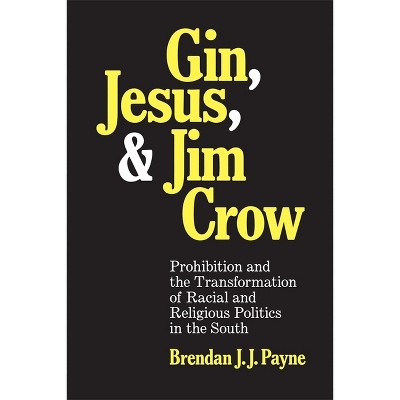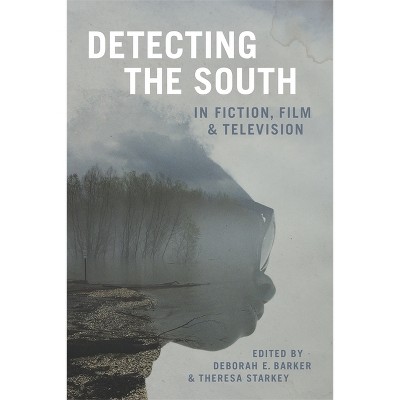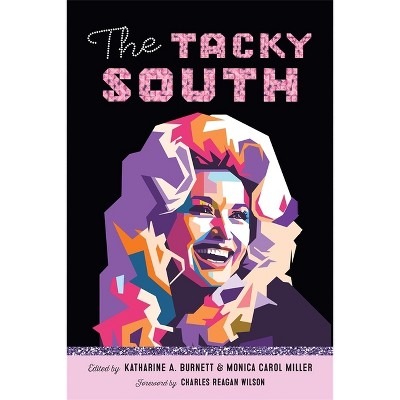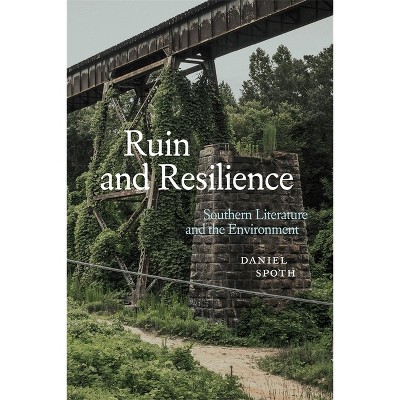Sponsored

The Real South - (Southern Literary Studies) by Scott Romine (Paperback)
In Stock
Sponsored
About this item
Highlights
- In this stimulating study, Scott Romine explores the impact of globalization on contemporary southern culture and the South's persistence in an age of media and what he terms "cultural reproduction.
- About the Author: Scott Romine, an associate professor of English at the University of North Carolina at Greensboro, is the author of The Narrative Forms of Southern Community.
- 296 Pages
- Literary Criticism, American
- Series Name: Southern Literary Studies
Description
About the Book
THE REAL SOUTH is a stimulating, cutting-edge study that explores the impact of globalization on contemporary southern culture and the South's persistence in an age of media and what the author terms "cultural reproduction." Rather than being compromised, he asserts, southern cultures are both complicated and reconfigured as they are increasingly detached from tradition in its conventional sense. In considering Souths that might appear fakethe South of the theme restaurant, commercial television, and popular regional magazines, for exampleRomine contends that authenticity and reality emerge as central concepts that allow groups and individuals to imagine and navigate social worlds. Less concerned with what actually constitutes an "authentic" or "real" South than with how these concepts are used today, THE REAL SOUTH explores a wide range of southern narratives that describe and travel through virtual, simulated, and commodified Souths.Book Synopsis
In this stimulating study, Scott Romine explores the impact of globalization on contemporary southern culture and the South's persistence in an age of media and what he terms "cultural reproduction." Rather than being compromised, Romine asserts, southern cultures are both complicated and reconfigured as they increasingly detach from tradition in its conventional sense. In considering Souths that might appear fake -- the Souths of the theme restaurant, commercial television, and popular regional magazines, for example -- Romine contends that authenticity and reality emerge as central concepts that allow groups and individuals to imagine and navigate social worlds.
Romine addresses a major critical problem -- "authenticity" -- in a fundamentally new manner. Less concerned with what actually constitutes an "authentic" or "real" South than in how these concepts are used today, The Real South explores a wide range of southern narratives that describe and travel through virtual, simulated, and commodified Souths. Where earlier critics have tended to assume a real or authentic South, Romine questions such assumptions and whether the "authentic South" ever truly existed.
From Gone with the Wind, Civil War reenactments, and a tennis community outside Atlanta called Tara, to the work of Josephine Humphreys, the travel narrative of V. S. Naipaul, and the historical fiction of Lewis Nordan, Romine examines how narratives (and spaces) are used to fashion social solidarity and cultural continuity in a time of fragmentation and change. Far from deteriorating or disappearing in a global economy, Romine shows, the South continues to be reproduced and used by diverse groups engaged in diverse cultural projects.
From the Back Cover
"Romine's study of representation is incisive, exhaustive, and theoretically sophisticated, combining wit and political attentiveness. Thought provoking and engaging in itself, The Real South also provides grist for future interdisciplinary investigation." -- Journal of Southern History
"The Real South gains its considerable force showing us in often hilarious and heartbreaking detail how unreal what passes for real can be." -- Southern Literary Journal
In this stimulating study and winner of the C. Hugh Holman Award, Scott Romine explores the impact of globalization on contemporary southern culture and the South's persistence in an age of media and what he terms "cultural reproduction." Rather than being compromised, Romine asserts, southern cultures are both complicated and reconfigured as they increasingly detach from tradition in its conventional sense. From Gone with the Wind, Civil War reenactments, and a tennis community outside Atlanta called Tara, to the work of Josephine Humphreys, the travelogue of V. S. Naipaul, and the historical fiction of Lewis Nordan, Romine examines how narratives (and spaces) are used to fashion social solidarity and cultural continuity in a time of fragmentation and change. Far from deteriorating or disappearing in a global economy, Romine shows, the South continues to be reproduced and used by diverse groups engaged in diverse cultural projects.
Scott Romine, a professor of English at the University of North Carolina at Greensboro, is the author of The Narrative Forms of Southern Community.
About the Author
Scott Romine, an associate professor of English at the University of North Carolina at Greensboro, is the author of The Narrative Forms of Southern Community.










